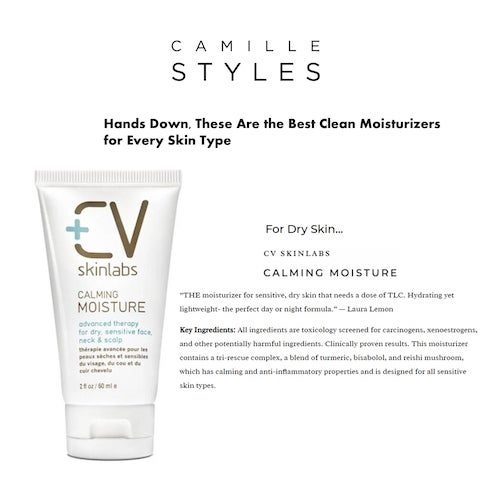Does climate change affect eczema?
According to recent research it is, but it depends on where you live.
In this post, we’ll look at the impact climate change may have on your symptoms, and what you can do to make your skin look and feel more comfortable.
Climate change affects eczema: what the research shows
Scientists published a new review in June 2024. They looked at 18 studies on the impact of climate hazards and atopic dermatitis (AD), another name for eczema.
They found that for most climate hazards there is evidence of worsening AD symptoms, with consequences ranging from direct to indirect effects.
For example, an increase in the number of forest fires in some regions could worsen symptoms in fires caused by the presence of particulate matter in the air. That was an immediate effect. Then there were indirect effects, such as drought-induced food insecurity and migration.
Jessica Johnson, MPHdirector of community research and engagement at the National Eczema Association, noted that the majority of climate hazards associated with greenhouse gas emissions “negatively impact AD prevalence, severity, and healthcare utilization.
She added that the impact of climate change on AD “is influenced by geographic region and climate,” with precipitation shown to increase the risk of AD in children in the US. However, studies in other geographic regions have shown that precipitation was associated with an increase in AD symptoms only when daily rainfall was below a certain threshold.
The scientists have also created maps that show how climatic hazards affected eczema in certain geographical areas, mapping cumulative exposure in 2005 and 2017, as well as forecasts for 2053. The 2005 and 2017 maps showed an overlap between the areas with greater exposure to climatic hazards and an increased prevalence of atopic dermatitis. The 2053 maps have been used to indicate the areas that may be most affected in the future.
Ultimately, the scientists noted that they needed more data, especially from the regions most likely to face more climatic hazards.
Other studies support the idea that climate change affects eczema
This isn’t the only study looking at this problem. Scientists reported this in 2021 eczema is an ‘environmental disease’, noting that climate change “alters the allergenicity of pollen, increasing symptoms of atopic eczema in some patients during the pollen season.”
Some people with eczema know that pollen causes it, and plants tend to produce more pollen in warmer temperatures. Temperature increases associated with climate change can increase pollen levels, which can worsen symptoms.
Researchers also reported in 2023 that both cold and warm temperatures can affect itchingrash, skin barrier dysfunction and the development of AD.
Harvard Health reported in the summer of 2024 that wildfires in Quebec and the resulting thick haze over Boston, Massachusetts increased eczema and dermatitis flare-ups in patients. When scientists looked at itthey found a notable increase and an atypical summer peak in carbon monoxide levels in the Boston area while the fires were ongoing, and that correlated with a spike in AD, dermatitis, and eczema-related dermatology clinic visits.
Air pollution, made worse by wildfires, can damage the skin from the smoke and chemicals used to put out fires. These can cause inflammation in the skin, leading to itching, rashes, dryness and flare-ups.

The link between climate change and eczema
In general, climate change can affect eczema in three ways:
Increased allergens
As the planet warms, the pollen season becomes longer and more intense. That means more allergens floating around, which can cause eczema flare-ups. Climate change also has consequences for mold and dust mites, which can also cause complaints.
Extreme weather conditions
Heat waves, heavy rainfall and humidity are becoming more common due to climate change. Extreme heat can dry out your skin and worsen itching, while high humidity can lead to excessive sweating, which is also a trigger for eczema.
Air pollution
Air quality decreases as pollutants increase. Ozone and particulate matter irritate the skin and can worsen eczema symptoms.
Climate change affecting eczema: managing your symptoms
If you know what the weather is like in your area, you can take precautions to increase your skin’s resistance and reduce your complaints. Here are some practical tips to keep your eczema under control.
Stay hydrated
One of the best ways to combat eczema is to keep your skin well hydrated. In dry, warm weather, our skin can quickly lose moisture. Use a thick, soothing moisturizer daily and always apply it immediately after bathing to lock in moisture.
Look for products that are fragrance-free and designed for sensitive skin, like our Calming Moisture and Body Repair Lotion. Both are designed to help protect the outer barrier while providing deeply nourishing moisture.

Choose your skin care products wisely
Choose gentle, hypoallergenic products. Avoid soaps and cleansers with harsh chemicals as these can strip your skin’s natural oils, causing it to dry out further. Also avoid alcohol-based toners, as these are also drying and can worsen your symptoms.
We recommend using our Rescue + Relief Spray as a toner and as a refresher. It cools, soothes and hydrates and helps the skin retain moisture throughout the day. It also helps prepare the skin for moisturizer, which balances pH levels and tames inflammation.
Control Allergens
To deal with increased allergens, keep your environment as allergy-free as possible. Clean your home regularly to reduce dust and mold. Use HEPA filters in your air purifiers and consider keeping windows closed during high pollen seasons. Wash bedding and pillowcases regularly in warm water to reduce dust mites. Use a humidifier in your bedroom if you live in a dry climate.
Stay cool and hydrated
Because heat and humidity can trigger eczema symptoms, you should stay cool and dry. Wear lightweight, breathable fabrics such as cotton and avoid overheating. Stay hydrated by drinking plenty of water, which will maintain your skin’s moisture balance.
Manage stress
Climate change can be a source of stress, and stress is a known trigger for eczema flare-ups. Find ways to manage stress through relaxation techniques such as deep breathing, meditation, yoga, journaling and meditation. Find activities that you enjoy and that help you release stress on a daily basis.
Monitor your environment
If air pollution is a problem in your area, limit your time outside during periods of high pollution. Check local air quality reports and stay indoors on days when pollution is high. Using a high-quality indoor air purifier can also help reduce exposure to pollutants. Houseplants also help purify the indoor air, as long as you take good care of them and prevent mold.
Have you noticed that climate change is affecting your eczema?
Featured image by RDNE Stock Project via Pexels.






